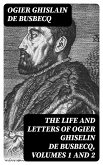In "Un souvenir de Solferino," Henry Dunant provides a poignant narrative that emerges from his harrowing experiences on the battlefield during the Second Italian War of Independence. With a uniquely vivid and immersive literary style, Dunant intertwines personal anecdotes with a critical social commentary on the plight of wounded soldiers who were often left without care. The book serves as both a memoir and a compelling call to action, effectively shaping the discourse surrounding humanitarian aid. Set against the backdrop of the gruesome Battle of Solferino in 1859, Dunant advocates for the establishment of voluntary ambulances and the need for a formalized organization to deliver medical assistance, ultimately leading to the founding of the International Red Cross Society. Henry Dunant, a Swiss businessman and social activist, was deeply moved by the suffering he witnessed at Solferino, which drove him to pen this influential work. His background in business and a burgeoning interest in humanitarian efforts converged in this critical moment, fostering a commitment to social justice and the welfare of those afflicted by war. Dunant's innovative ideas about voluntary aid reflect the changing attitudes towards warfare and its impact on human dignity during the 19th century. This seminal text is essential for anyone interested in the history of humanitarian efforts and the ethical evolution of warfare. Readers will find Dunant's impassioned prose not only informative but also evocative, urging us to reflect on our moral responsibilities in times of conflict. As relevant today as when it was first published, "Un souvenir de Solferino" remains a vital contribution to understanding the foundations of modern humanitarianism.
Dieser Download kann aus rechtlichen Gründen nur mit Rechnungsadresse in A, B, BG, CY, CZ, D, DK, EW, E, FIN, F, GR, H, IRL, I, LT, L, LR, M, NL, PL, P, R, S, SLO, SK ausgeliefert werden.









